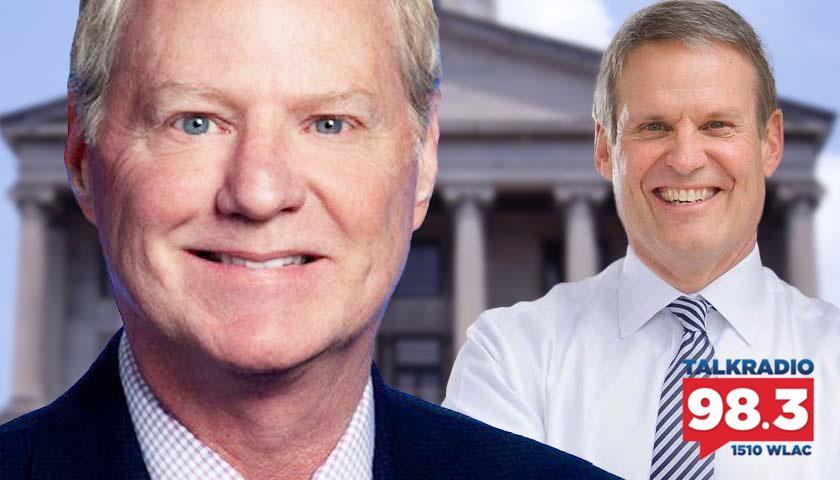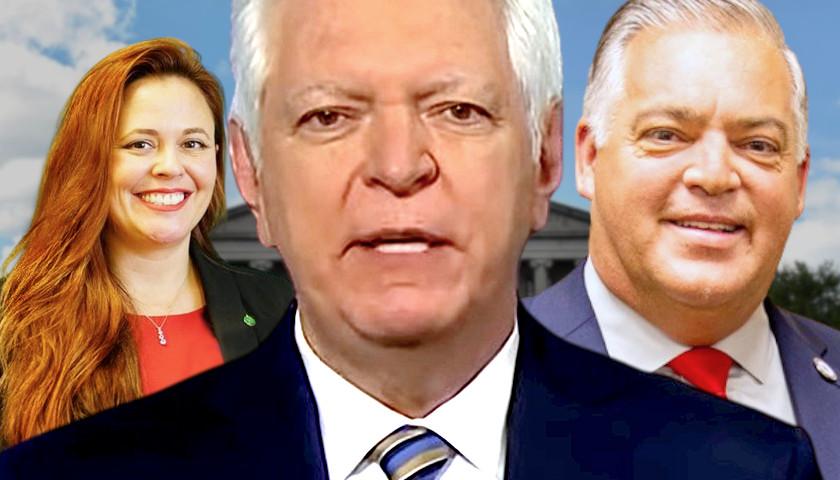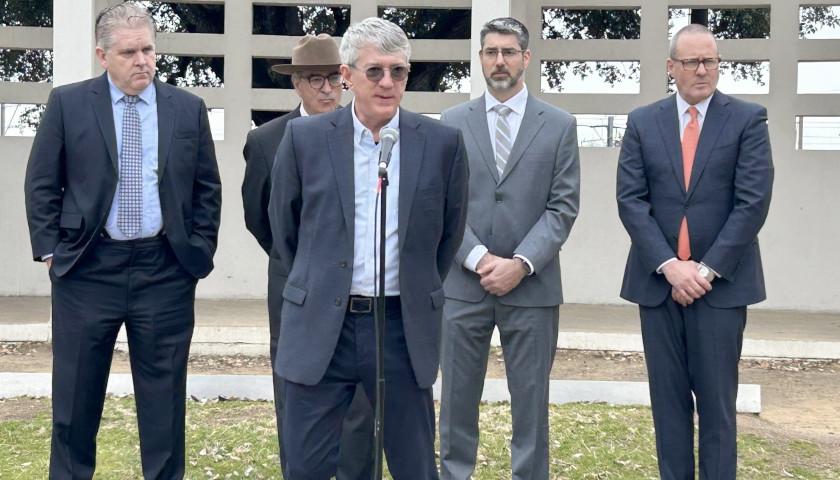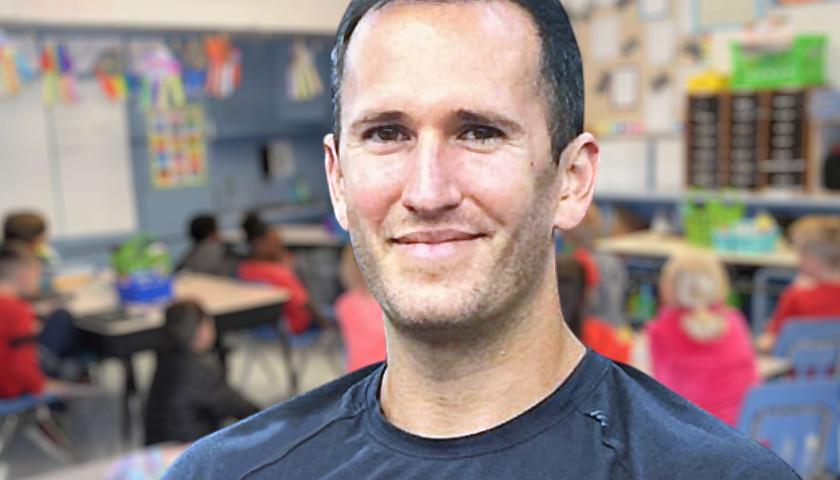Live from Music Row, Tuesday morning on The Tennessee Star Report with Michael Patrick Leahy – broadcast on Nashville’s Talk Radio 98.3 and 1510 WLAC weekdays from 5:00 a.m. to 8:00 a.m. – host Leahy welcomed Tennessee Commissioner of Transportation, Butch Eley in studio to discuss the public-private legislation needed to implement choice lanes in the state.
Leahy: We are delighted to have in our studio a very good friend for many years, I guess this now over 30, Butch Eley, the commissioner of transportation. Butch, you were describing the choice lane concept.
And I guess one of the questions we have is particularly, you know, on I-65, coming in from even from Franklin up to Nashville, it has those lanes. And I’m thinking, well, how do you add another lane there? The right of way becomes a bit of an issue. Tell us how that would work.
Eley: Yes, that’s a great question, Michael. And there’s actually more right of way than most people realized back in the day as the interstate system was formed. There’s more land than what typically is known. And so most of this can be done in those areas with existing right of way. There will be some situations that are tight.
We’ve had a lot of construction, and a lot of growth in the Middle Tennessee area. But it’s important to recognize that this is not just an urban issue. You live in the suburbs of Nashville. The rural areas also are seeing this pressure.
And so what we’re looking at is being able, if we can invest with these public-private partnerships, it allows us to reallocate those dollars that we would otherwise have to spend just in the urban area and be able to expand some of our interstates. We think we’ve got certainly the engineering capability to do that.
Leahy: To illustrate the issue of growth, we moved right around the time I was teaching at Belmont in 1997. We moved from Nashville to the Thompsons Station Spring Hill area. I thought we’d moved to the far side of the moon. (Eley chuckles)
You may recall, Cool Springs hadn’t been up there. One day we were looking for a place to buy, and we just kept driving and driving and driving and driving. This is too far away! Well, right now it’s right smack dab in the middle of suburbia. And it makes your point about growth and how you’ve got to have a solution for this. To me, logically, this sounds like a pretty good solution.
Now, on our side, a lot of people look at this and you said something that occasionally sort of makes folks on our side shiver. When you say public-private partnership, explain that a little bit and how that’s worked in the past, and how that will benefit taxpayers in Tennessee.
Eley: Yes, well, the biggest benefit to public-private partnership is the private sector. We’re inviting the private sector to come in and invest in our infrastructure. The important thing to note is that our roads are our roads. We own them.
We’ll never sell any of our infrastructure assets in that way. So they would come in for a long-term lease to where they would finance, design, build, operate, and maintain that roadway.
Leahy: But we own it.
Eley: We own it at the end of that agreement, then it’s ours.
Leahy: But they get some of the revenue from the choice lane.
Eley: That’s exactly right. They’re making that upfront investment, and so they’re getting some of the fees from the choice lanes. Now there is a threshold once you get to where the state shares in that, but basically, it’s to pay back that original investment.
Leahy: So the taxpayers of Tennessee don’t put up the cash.
Eley: That’s exactly right. That’s exactly right. In Texas, what they have seen is that in some situations, the cost of the project was so large it may be a $500 million dollar project, let’s say. So they would have to put some amount of subsidy out, but they would get, let’s say, 80 percent of the project paid for, which allows them to make that investment into other projects. The important thing too is we’re doing this without raising taxes at all and we’re not issuing any debt. And so I think it’s important that people realize that that’s one of the major reasons we are doing this.
Leahy: This bill is before the Tennessee General Assembly as we speak. How’s it going there? What kind of response are they getting? Are you answering the questions? Do we think this is going to pass? And, of course, the big question will the governor sign the bill if it passes? (Laughter)
Eley: Yes. Let me say this, this is his idea and his bill.
Leahy: So you think he’ll sign it?
Eley: Yes, I think he’ll sign it if it comes to his desk. But really the response of the legislature has been great. Both the Speakers have been good to talk to about this. They understand the situation that we’re in. Our House leadership in the Transportation Committee Chairman Howell and then in the Senate Chair Becky Massey.
They really understand this issue, and they’ve been very helpful in designing this idea that they believe, and I believe, certainly will help Tennesseans. And so it’ll be working its way through committee.
Actually, starting this week, we will be in the Senate and in the House talking about this, and answering questions from members. And so there are several steps that it will go through over the coming weeks, but it’ll continue to proceed and I think be dealt with during this legislative session.
Leahy: That’s what it looks like to me. Also, I believe that a bill with some modifications will be passed by both Houses, will be presented to the governor for signature. He’ll probably sign it. And then that means by June or July; this will be law. If all goes well, when does the implementation begin, and when will people start seeing the choice lane options be taken?
Eley: Yes. That’s a great question because it’s important to recognize what this legislation actually does. And that is to give us the authority to do these public-private partnerships. Right now in Tennessee, we’re one of only a handful of states that does not have that capability. And so we’re seeking that authority.
We know from congestion studies that we have already done that there are existing bottlenecks and projects, good potential projects out there, but we’ve got to do our deep dive due diligence to find out which ones are economically feasible and which ones give us the most optimum result.
And so we’ll be doing that over the coming months, and then we’ll be coming back to the legislature this next session and being able to show them which projects we’re looking at. What the governor has also said is we need to do this in every part of the state and then we also need to do rural projects in conjunction with this so that everybody in the state benefits.
Leahy: Would it be fair to say that by the end of Governor Lee’s second term, which will be three or four years from now, we’ll start to see some of these projects come to fruition?
Eley: If I have it my way, I’m here four more years, and we’ll see one of these projects get started.
Listen to today’s show highlights, including this interview:
– – –
Tune in weekdays from 5:00 – 8:00 a.m. to The Tennessee Star Report with Michael Patrick Leahy on Talk Radio 98.3 FM WLAC 1510. Listen online at iHeart Radio.
Photo “Bill Lee” by Gov. Bill Lee. Background Photo “Tennessee Capitol” by Ron Cogswell. CC BY 2.0.




